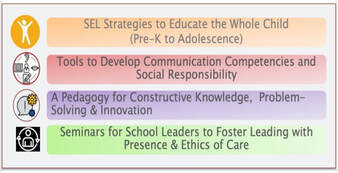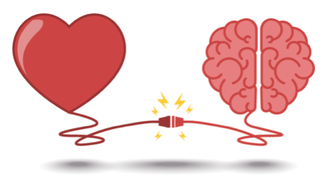 The “Normal” that students will return in the fall will be better. There is no doubt; we all have learned important lessons during these unprecedented times. One of the key lessons that educators, parents, and communities in general have learned is the value of social emotional development and mental health, and its relevancy to learning. In addition, we have also learned the value of attending to our own SEL and mental health to care for others, that is its relevancy to effective teaching. The Fordham PDRC has invited The Conscious Discipline experts to share the wealth of research-based knowledge and practices that educators can tapped into towards planning for a better normal in the fall (see invitation to the webinars at the end of the article). Social -Emotional Learning & Self-Concept As described by the Collaborative for Academic, Social, and Emotional Learning (CASEL), social-emotional learning is defined as “the process through which all young people and adults acquire and apply the knowledge, skills, and attitudes to develop healthy identities, manage emotions and achieve personal and collective goals, feel and show empathy for others, establish and maintain supportive relationships, and make responsible and caring decisions.” (Casel Framework, www.casel.org)  Deep within this definition is the concept of self, that is, the way we view ourselves and the world. Based on the study of the brain (Sousa*, 2001), the development of self-concept is based on our past experiences, thus the value of educating the whole child. When we teach to the whole child and incorporate strategies that connect learning to SEL, such as praising a student’s effort on a project, we are strengthening a student’s self-concept because the brain encodes the emotional signals linked to the experience and stores them in the brain. Similarly, a negative experience or a trauma, such as having to stay at home or not being able to be with classmates in school, can lower the way a student sees himself/herself. These sensory registers stored in the brain are triggered when the student encounters a similar situation. For example, a student may apply himself to complete a task or a project successfully because it is linked to a teachers’ praise and/or the satisfaction s/he had experienced previously. The challenging times that both students and adults are experiencing this academic year explains what has been called ‘emotional fatigue’, or having super-stressed brains resulting from the uncertainty resulting from the pandemic. that is teachers and students have personal stories that are impacted by trauma or stress. According to Sprenger (MiddleWeb ·10/18/2020) these are personal stories. And students always come to class with personal stories. These stories can be positive or negative, but the connections that teachers make between learning and SEL are important in both scenarios. For students who come to class with positive stories, the connection with social-emotional learning enhances their self-concept and help them develop the skills they need to succeed. The SEL connection is even more important for students with traumatic and difficult personal stories. For these students, teaching through social-emotional learning can help them find a balance between negative experiences and positive ones. At the heart of teaching SEL is relationships. Teachers need to know their students and build relationships as the first step to fostering self-concept and engage them in their learning. Today, many educators suffer from ‘emotional’ fatigue and have super-stressed brains, hence the need to first care for self and calm their own brains before caring for their students. It is only then that they will feel competent in building relationships with their students, and further their students SEL competences: self-awareness, self-management, social awareness, handling relationships, and decision-making. The upcoming professional development with Amy Speidel a Master Instructor with Conscious Discipline will offer educators and leaders of religious and independent schools an opportunity to build background knowledge and deepen their understanding about SEL development and trauma informed SEL strategies for the classroom and for the school. We trust that this new information supported by the wealth of resources available will enable school leaders, teachers, and parent community to create calmer and stimulating learning environments where students’ self-concept and the love for learning become the focus of the new classroom landscape. Reserve your Seat! Conscious Discipline: The Brain State We're In Presenter: Amy Speidel, Master Instructor, Conscious Discipline Date: Monday, April 19, 2021 || Time: 4:00-5:00 pm || Register Today Date: Monday, April 19, 2021 || Time: 8:00-9:00 pm || Register Today (Repeat of the 4 pm session) Conscious Discipline: The Link Between Connection and Cooperation Presenter: Amy Speidel, Master Instructor, Conscious Discipline Audience: Open to all EducatorsDate: Tuesday, May 4, 2021 || Time: 8:00-9:00 pm || Register Today Date: Monday, May 24, 2021 || Time: 4:00-5:00 pm || Register Today (Repeat of the May 4th session) CTLE Credits Hours: 1 hour (in-class participation) References 1. Sousa, David A. (2001) How the Brain Learns, second edition. Corwin Press, Inc.
0 Comments
Your comment will be posted after it is approved.
Leave a Reply. |
Archives
January 2024
Categories
All
|
